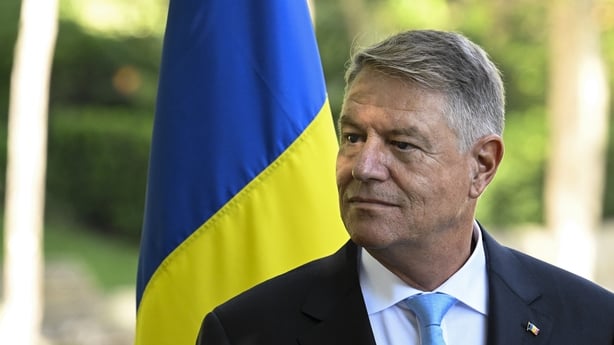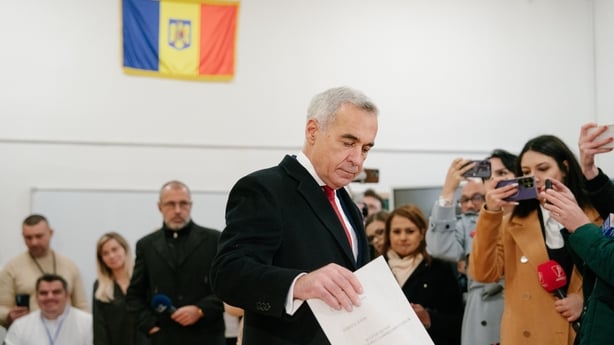Romania's pro-EU President Klaus Iohannis said he would stay in his post until a successor can be elected after the country's top court cancelled the presidential vote just two days before the run-off.
"I remain in office until a new president of Romania is elected," Mr Iohannis said in a speech, adding a new government that emerges from legislative elections last weekend would have to be formed to fix a new presidential election date.
Romania's top court annulled an ongoing presidential election after accusations of Russian meddling and said the entire process, which had been due to conclude this weekend, would have to be re-run.
The second round had been scheduled for Sunday and voting had already begun in polling stations abroad.
It would have pitted Calin Georgescu, a far-right, pro-Russian candidate, against pro-European Union centrist leader Elena Lasconi.

"The electoral process to elect Romania's president will be fully re-run, and the government will set a new date and ...calendar for the necessary steps," the court said in a statement.
Mr Georgescu scored single digit numbers in opinion polls before the first round vote on 24 November but then surged to a first-place finish that raised questions over the result.
The Romanian politician wants to end Romanian support for Ukraine against Russia's invasion.
If he won the presidency it would upend the pro-Western politics of the EU and NATO members, pushing Romania closer to a belt of states in central and eastern Europe that have powerful populist,
Russia-friendly politicians, including Hungary, Slovakia and Austria.
The court ruling plunged the country into institutional chaos.
Current President Iohannis's term ends on 21 December and it was unclear who would be head of state after this date.
Analysts said the ruling may erode institutions, trigger street protests and ultimately still endanger the nation's pro-Western course.
It was not yet clear if Mr Georgescu would be allowed to take part in the re-run election.
Romania's top security council declassified documents that said the country was a target of "aggressive hybrid Russian attacks" during the election period.
Russia has denied any interference in Romania's election campaigns.
The top court, which had validated the first presidential round, said in its reversal that it was"seeking to ensure the fairness and legality of the electoral process", adding that a detailed explanation of its ruling would be released at a later date.
George Simion, the leader of the opposition hard-righ tAlliance for Uniting Romanians (AUR) called the court ruling a "coup d'etat", adding "nine politically appointed judges, scared that a candidate outside the system had all chances to becomeRomania's president, decided to annul Romanians' will".
Mr Simion came fourth in the first round. He and AUR then endorsed Mr Georgescu.

Romania's anti-organised crime prosecuting unit DIICOT said it was launching an investigation into Mr Georgescu's campaign after analysing the declassified documents.
"Prosecutors are looking at the commission of the crimes of illegal operations with computer devices or programmes, the attempted crime of disrupting the functioning of computer systems and the attempted crime of illegal access to a computer system," it said in a statement.
The run-off vote would have been the third consecutive ballot after the first presidential round and a 1 December parliamentary election in which far-right parties gained a third of seats, though the ruling Social
Democrats emerged as the largest grouping and hoped to cobble together a pro-EU coalition government.
The parliamentary vote was unaffected by the court ruling.
Read more stories from around the world
In one of the declassified documents, Romania's intelligence agency said Mr Georgescu was massively promoted on social media platform TikTok through coordinated accounts, recommendation algorithms and paid promotion.
Mr Georgescu has declared zero funds spent in the campaign.
TikTok denies giving Mr Georgescu special treatment, saying his account was labelled as a political account and treated like any other.

